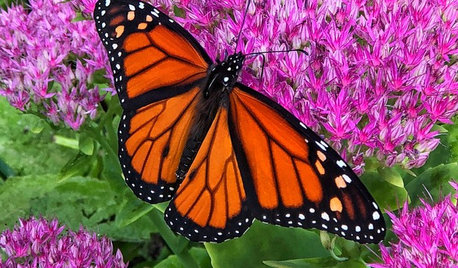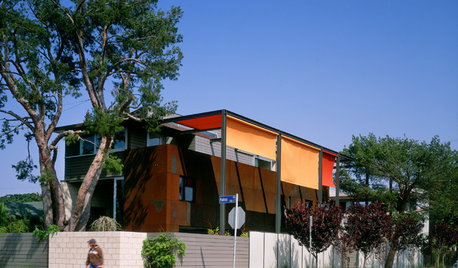I offer this info as coming from a good source, though I am not sure how/whether it all applies all over the US. I hope it won't start a fight, I think we all want to do what's right for the butterflies. I just thought this might be interesting/helpful.
Here are excerpts from an email exchange that I found helpful, for LA area gardeners (I am leaving off the name b/c I didn't ask if I could use it). I had asked about 3 milkweeds,
California milkweed (Asclepias californica)
Woolly milkweed (Asclepias vestita)
Woollypod milkweed (Asclepias eriocarpa)
A. fascicularis
A. erosa
" The three species you mentioned all have occurrences in L.A. County, as do A. fascicularis and A. erosa. [... I took out the name of the seller, I think there is a rule here about that? If not, ask me and I'll blab.] typically sells seed of these species. If you get in touch with them, please mention that you�re looking for seed that is sourced from as close to L.A. as possible (they likely carry many seed lots that are sourced from northern CA). However, I should mention that milkweeds are notoriously difficult to maintain in pots. It sounds like your tropical milkweed is doing well, but I can�t guarantee that these natives will thrive in containers.
...
[I had asked about these.] Those orange aphids are �oleander aphids� (Aphis nerii). They�re not native to the U.S. but are now well-established and are a pest of milkweeds across the country. It�s amazing that they located the plant on a 3rd floor balcony! Or, maybe they were already present on the plant or in the soil when you purchased it� So long as monarch caterpillars aren�t also present on the plants, you could potentially use insecticidal soap to control the aphids.
Yes, it�s true that tropical milkweed (A. curassavica; ASCU) attracts monarchs. There is nothing about tropical milkweeds� chemistry that is inherently harmful to monarchs. Monarchs use tropical milkweed as a host plant in Central and South America where it is either native or naturalized. Female monarchs readily lay eggs on the plants and caterpillars complete their development without any problems. One major difference between ASCU and native milkweeds is that it�s a perennial, evergreen species whereas the majority of North American native milkweeds are deciduous and don�t have foliage during late fall and winter.
The concerns that scientists have raised are about tropical milkweeds� potential to 1) harbor spores of the protozoan parasite Ophryocystis elektroscirrha, 2) cause monarchs to breed outside of their regular season, and 3) cause monarchs to persist in areas longer than they usually would. I�ve attached a short newsletter article by a monarch researcher in Georgia, that provides a good summary of these concerns.
In areas with mild winters (such as southern CA), the plants typically have foliage year-round and thus there is potential for parasite spores to accumulate. In comparison, native milkweeds� foliage dies back over the winter and the plants re-emerge in the spring.
Regarding (2) above, there is evidence that monarchs are breeding on tropical milkweed in Texas and Florida during the late fall and winter, rather than migrating to Mexico. And, there�s concern about the presence of tropical milkweed in coastal California near monarch overwintering sites, because it�s thought that monarchs may be enticed to lay eggs on the plants, outside of the regular breeding season, and the caterpillars then won�t likely be able to complete their development because of cold temperatures. In summary, due to these concerns about potentially negative impacts to monarchs, we focus on promoting the planting of native milkweeds.
If you want to keep your tropical milkweed but minimize/avoid potential negative impacts to monarchs, you could cut it back at the end of fall so that spores can�t build up and so that the plant isn�t available for monarchs to lay eggs on outside of their regular breeding season. And, you could consider cutting off the maturing seed pods, to prevent seed dispersal."
If anyone wants the newsletter, I can try to send it. I thought this was long enough.







Monarch-Ma-so.cal
Need2SeeGreen 10 (SoCal)Original Author
Related Discussions
Ponkan and Clemenule Mandarin - Where to buy in So. Cal
Q
Fruits for SoCal????
Q
Monarchs approaching Red River- Please report your sightings
Q
February update So.Cal tropicals.......
Q
Need2SeeGreen 10 (SoCal)Original Author
Monarch-Ma-so.cal
Need2SeeGreen 10 (SoCal)Original Author
docmom_gw